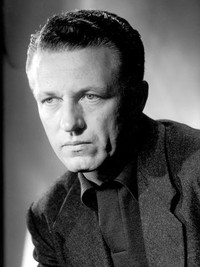Nicholas Ray

Having been one of the first to portray disaffected youths in a number of social dramas, director Nicholas Ray pioneered a subgenre while almost singlehandedly putting a spotlight on teenage angst. Ray perfected the character of the detached loner railing against integration into society with "Rebel Without a Cause" (1955), which starred James Dean in the young actor's most iconic role before his tragic death just months before the film's release. Prior to "Rebel," Ray directed "They Live by Night" (1949), one the hallmarks of film noir, and "In a Lonely Place" (1950), which featured arguably one of Humphrey Bogart's finest performances of his career. Ray continued his exploration into the darker corners of American life with "On Dangerous Ground" (1951), before breaking away from noir with a pair of Westerns, "The Lusty Men" (1952) and the female-centric "Johnny Guitar" (1954). But it was "Rebel Without a Cause" that cemented his legacy and made him a darling of the French New Wave critics from Cahiers du Cinema, who hoisted him up as something of a filmmaking god, despite Ray's failure to achieve such success again. Struggling with drug and alcohol addiction later in life, Ray hit bottom with "Party Girl" (1958) and "The Savage Innocents" (1960), before taking a big payday to direct his final two movies, "King of Kings" (1961) and "55 Days at Peking" (1963). Ray collapsed on set of the latter film and never returned to directing Hollywood movies, only to live out the rest of his days as a professor in upstate New York. Despite the obscurity of his final years, Ray nonetheless loomed large over cinema history for both his technical and thematic influences that were felt decades later.